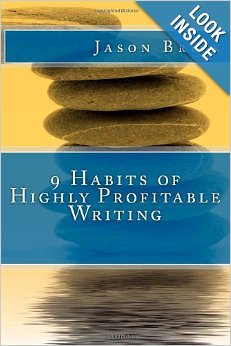For almost all of  us, there comes a time when we end up on the treadmill. The gerbil wheel. The Sisyphean slope. That point in our lives where we are working hard, fully engaged and in motion, but not actually going anywhere.
us, there comes a time when we end up on the treadmill. The gerbil wheel. The Sisyphean slope. That point in our lives where we are working hard, fully engaged and in motion, but not actually going anywhere.
Are you now (or have you ever been) frequently saying or thinking things like…
- This gig is a dead-end street
- I need a change but I don’t know what, or how
- There’s no room for promotion here
- I’d be doing great if I just had X more bucks or Y more hours each month
- Fuck six blue ducks, but I hate my life
The treadmill is often frustrating, rarely rewarding, energy-consuming and more boring than Ben Stein at a stranger’s wedding telling you about this crazy dream he had. But – and here’s the insidious evil of the treadmill – it has just enough advantages to keep you on it.
You’re getting some exercise. We use regular treadmills because they let us run or walk to get healthier. The repetition of most treadmill gigs means you’re getting practice at one skill or another, eating up those 10,000 hours towards mastery.
Routine is comforting…and we love to be comfortable. Even for adventurous types, doing the same predictable thing for the same predictable paycheck cuts our stress. For some people, this is even more important than being challenged or fulfilled.
You’re getting paid. A “goodnuff” job at a “goodnuff” wage is what a lot of people have to live with because they have broader responsibilities or narrower options. We enjoy eating food and sleeping indoors, and a treadmill gig can help us do that.
I spent two years on a treadmill called Demand Studios. This company made money via a combination of gaming Google’s search algorithms and not-quite-lying about their profits for an eventual IPO. The work was boring and the pay just a nudge above insulting by professional standards. I usually love my editors, even (especially) the ones who push me. But editors there would tell me things like “Bruce Lee isn’t relevant to ab workouts” or “This article is about the United States. Don’t write about New Mexico.”
It was a treadmill, but at the time we had just had a baby and The Artist Formerly Known As My Wife suffered health complications that took her out of the contribution equation for half of the first year. What I needed was a comforting, low-stress, low-effort, reliable gig that paid the bills. By the time she was able to work in and out of the house, I’d fallen into that soporific routine and stayed there even when I should have been growing myself as a coach, speaker and writer.
As I discovered, and I imagine most of you know, the treadmill has problems that come along with the things it does all right.
You don’t grow new skills. I got great at writing 500-word online articles, but I didn’t learn how to write longer pieces, or humor, or speeches or white papers. A treadmill gig at a call center builds patience and communication skills, but won’t move you closer to your dream of owning the world’s funniest T-shirt company.
They eat up just that much time so you don’t have the energy or opportunities to pursue other avenues. I made okay money at Demand Studios, but would have been better off spending some of that earning time building other assets. Ask anybody who works at Home Depot or waiting tables “just until that big break” how absolutely true this is.
Comforable is just an inch away from complacent. Treadmills become ruts really fast. If you stay on one long enough, you find the habits and skills that help you get off of them have atrophied. You become addicted to the comfort, safety and routine. I stayed with that content mill for a year after I needed it, and everybody who’s ever waited tables knows that one 60-year-old who never got around to doing something else.
What if the treadmill breaks? “Steady jobs” are no more stable or dependable than freelance gigs. If your meal ticket stops paying out, you are screwed. When Google bitch-slapped Demand Studios, the whole thing came falling down. I was lucky to have found some other, better clients or I might be working a real job right no. When the mill closes down, this is exactly what happens.
If you want to be the person you wish you were, you must get off the treadmill.

“Please, do as they say! Get off the…treadmill!”
Treadmills give you just enough reward and give an illusion of reduced risk to stay tempting even when you know you should get off. But you want to get off, or you wouldn’t still be reading this.
 This past month I’ve made contact with a few writers/prospective writers. They’re way smarter than me (not a difficult task) but still stuck in the “wish I could write for a living” stage. From my experiences at conferences, they’re not alone.
This past month I’ve made contact with a few writers/prospective writers. They’re way smarter than me (not a difficult task) but still stuck in the “wish I could write for a living” stage. From my experiences at conferences, they’re not alone.
 I don’t have to tell any of you what Orange is the New Black is. (If I do, go do some research. I’ll wait.)
I don’t have to tell any of you what Orange is the New Black is. (If I do, go do some research. I’ll wait.) us, there comes a time when we end up on the treadmill. The gerbil wheel. The Sisyphean slope. That point in our lives where we are working hard, fully engaged and in motion, but not actually going anywhere.
us, there comes a time when we end up on the treadmill. The gerbil wheel. The Sisyphean slope. That point in our lives where we are working hard, fully engaged and in motion, but not actually going anywhere.
